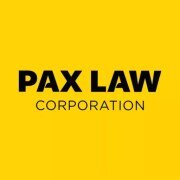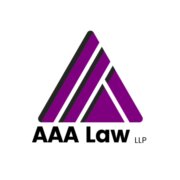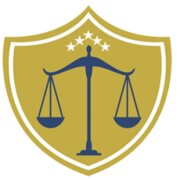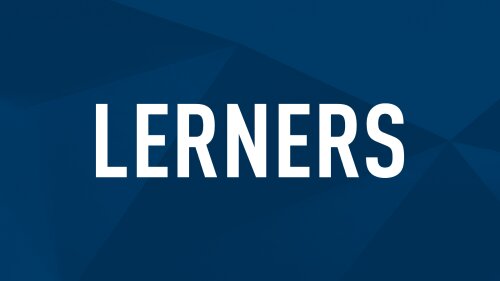Best Education Law Lawyers in Canada
Share your needs with us, get contacted by law firms.
Free. Takes 2 min.
Or refine your search by selecting a city:
List of the best lawyers in Canada
About Education Law in Canada
Education Law in Canada pertains to the legal principles that govern the creation, operation, and administration of education systems within the country. Rooted in both federal and provincial legislation, it addresses a wide range of issues from student rights, special education, education finance, teacher employment, and educational standards. As education falls under provincial jurisdiction, there can be variances between provinces in terms of policies and regulations, which require a clear understanding for those involved in the educational system, be it institutions, educators, students, or parents.
Why You May Need a Lawyer
There are several instances where individuals or organizations might require legal assistance in the realm of Education Law:
- Student Rights: Issues like discrimination, bullying, or improper disciplinary actions can require legal intervention.
- Special Education Needs: Ensuring appropriate accommodations, resources, and support for students with disabilities may necessitate navigating complex legal requirements.
- Employment Disputes: Teachers or staff facing issues such as unjust termination, harassment, or contract disputes might need legal advice.
- Institutional Compliance: Schools seeking to comply with local, provincial, and federal education laws may need legal consultation to avoid penalties.
- Funding and Administration: Issues related to financial management or administrative policy can sometimes require legal clarity.
Local Laws Overview
Key aspects of local laws relevant to Education Law in Canada include:
- Provincial Education Acts: Each province has its own Education Act outlining the governance and operational structures of educational institutions.
- Human Rights Legislation: Protects against discrimination on various grounds within the educational context.
- Privacy Laws: Governing the protection and use of student information across educational settings.
- Accessibility Laws: Mandating institutions to provide equitable access to education for students with disabilities.
- Child Protection Laws: Regulations ensuring the safety and welfare of children within educational environments.
Frequently Asked Questions
What is Education Law?
Education Law encompasses the statutes, regulations, and policies that govern the education system, ensuring compliance with legal standards and safeguarding the rights of students, educators, and institutions.
Who governs education in Canada?
Education is primarily a provincial and territorial responsibility. Each province and territory has its own ministry or department of education responsible for setting education policy, curricula, and standards.
What rights do students have under Education Law?
Students have the right to an inclusive and non-discriminatory educational environment, access to special needs accommodations, and protection of their personal information.
How do special education laws work in Canada?
Special education laws require schools to identify students with special needs and provide the necessary accommodations and educational modifications to support their learning experience.
What legal issues might teachers face?
Teachers may encounter legal issues related to employment contracts, workplace discrimination, pension disputes, and professional misconduct allegations.
What steps should be taken if a parent's rights are violated in an educational context?
If a parent believes their rights or their child’s rights are violated, they can file a formal complaint with the school or school board, seek mediation, or consult with a lawyer specializing in Education Law.
Is homeschooling legal in Canada?
Yes, homeschooling is legal across Canada. However, specific regulations and requirements vary by province, such as the need to register with a local school or submit educational plans.
How can disputes in educational settings be resolved?
Disputes can often be resolved through informal discussion, mediation, or arbitration. If these methods fail, legal action may be pursued through the appropriate tribunal or court system.
What role do school boards play in Education Law?
School boards operate under provincial education statutes and are responsible for setting local policy, managing resources, and ensuring compliance with relevant education laws.
Can a lawyer help with negotiating accommodations for my child?
Yes, a lawyer specializing in Education Law can assist parents in negotiating appropriate accommodations for their child's educational needs by navigating complex legal frameworks and advocating on their behalf.
Additional Resources
For further assistance or information regarding Education Law in Canada, consider consulting the following resources:
- Provincial Ministries of Education: Provide guidance and regulations specific to each province.
- Canadian Council on Learning: Offers vast research and information on educational standards and policies.
- Office of the Privacy Commissioner of Canada: For queries related to privacy in educational institutions.
- Canadian Human Rights Commission: For issues related to discrimination in education.
- Canadian Association for Community Living: Focuses on inclusivity and accessibility in education for students with disabilities.
Next Steps
If you require legal assistance in Education Law, consider taking the following steps:
- Identify the Issue: Clearly outline the situation or issue you are facing.
- Gather Relevant Documentation: Collect any necessary documents, emails, or records related to the issue.
- Research Legal Professionals: Look for lawyers or law firms specializing in Education Law, ensuring they have experience with cases similar to yours.
- Consultation: Schedule consultations to discuss your case and gain a clearer understanding of potential legal actions.
- Proceed with Legal Action: Work with your lawyer to pursue the most suitable course of action to address your issue.
Lawzana helps you find the best lawyers and law firms in Canada through a curated and pre-screened list of qualified legal professionals. Our platform offers rankings and detailed profiles of attorneys and law firms, allowing you to compare based on practice areas, including Education Law, experience, and client feedback.
Each profile includes a description of the firm's areas of practice, client reviews, team members and partners, year of establishment, spoken languages, office locations, contact information, social media presence, and any published articles or resources. Most firms on our platform speak English and are experienced in both local and international legal matters.
Get a quote from top-rated law firms in Canada — quickly, securely, and without unnecessary hassle.
Disclaimer:
The information provided on this page is for general informational purposes only and does not constitute legal advice. While we strive to ensure the accuracy and relevance of the content, legal information may change over time, and interpretations of the law can vary. You should always consult with a qualified legal professional for advice specific to your situation.
We disclaim all liability for actions taken or not taken based on the content of this page. If you believe any information is incorrect or outdated, please contact us, and we will review and update it where appropriate.
Browse education law law firms by city in Canada
Refine your search by selecting a city.















